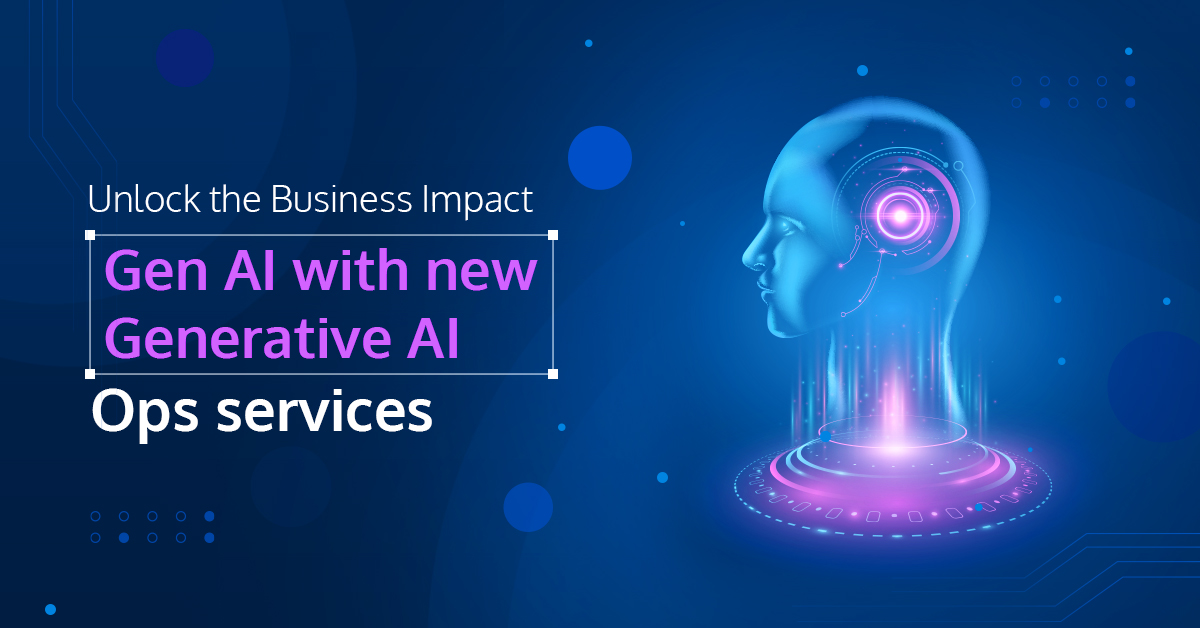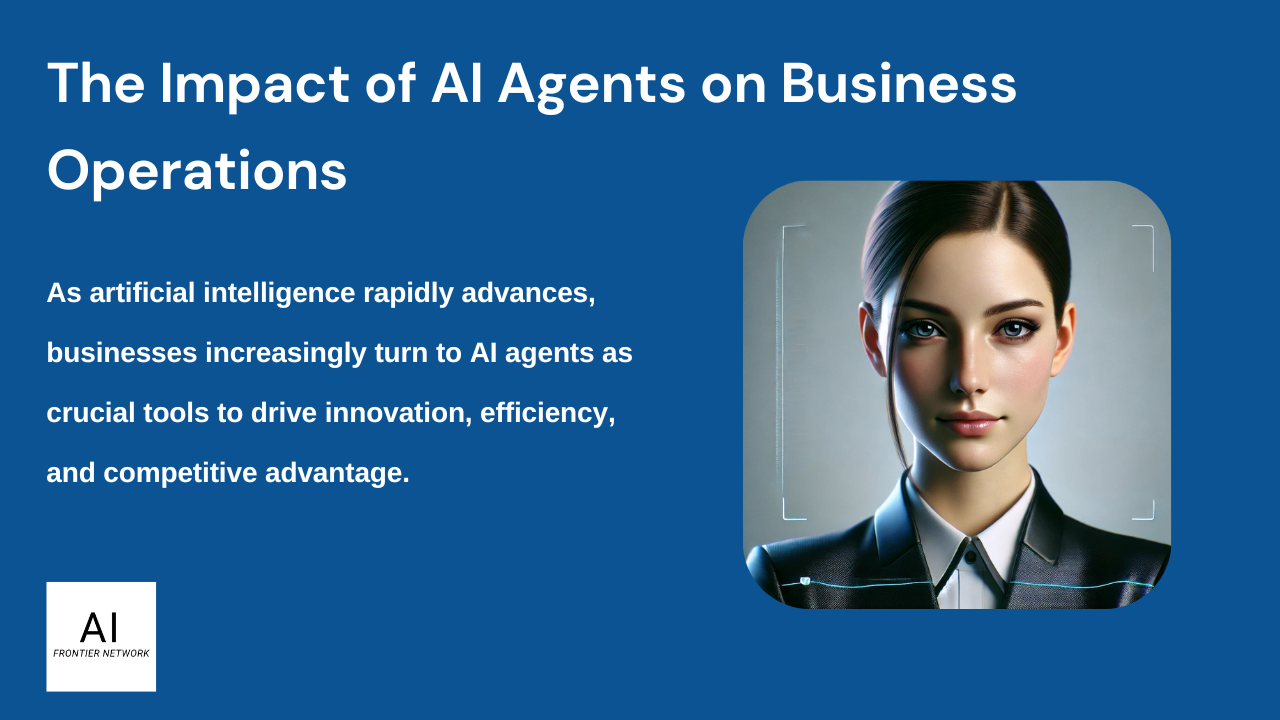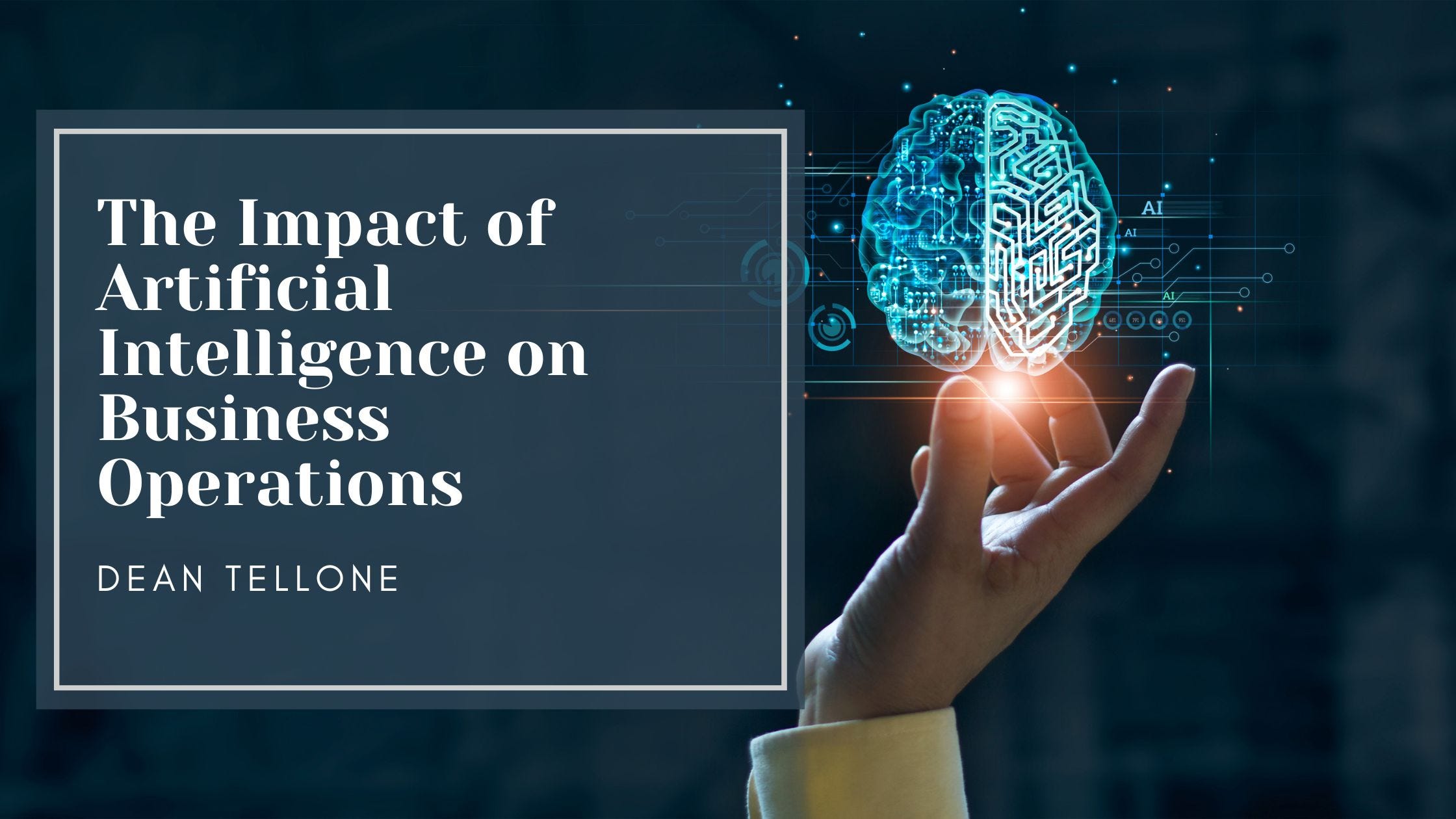“`html
The Dawn of AI in Business
Estimated reading time: 10 minutes
Key Takeaways
- The business world is undergoing unprecedented change, driven by technology.
- The **impact of artificial intelligence on business operations** is a present reality, reshaping commerce.
- AI is **revolutionizing industries** at a rapid pace.
- Developing a proactive **AI business strategy 2025** is crucial for success.
- Understanding the **benefits of AI in business operations** is key to unlocking its potential.
- Organizations must navigate the **AI business innovation challenges** to effectively implement AI.
Table of contents
- Introduction: The Dawn of AI in Business
- The AI Revolution: A Paradigm Shift Across Industries
- Core Impacts of Artificial Intelligence on Business Operations
- The Tangible Benefits of AI in Business Operations
- Crafting Your AI Business Strategy for 2025 and Beyond
- Navigating the AI Business Innovation Challenges
- Conclusion: Embracing AI for Future Success
The business landscape is in constant flux, accelerating at a pace once thought unimaginable, largely propelled by the relentless march of technology. We stand at the precipice of a new era, one defined by intelligent machines and their pervasive influence. The **impact of artificial intelligence on business operations** is no longer a distant projection; it is a present reality, actively reshaping every facet of commerce as we know it. This transformative force, AI, is not merely an incremental improvement; it is **revolutionizing industries** on a global scale. For organizations, the imperative to develop a robust **AI business strategy 2025** is no longer a choice but a necessity for survival and growth. This exploration aims to delve into the profound **impact of artificial intelligence on business operations**, illuminate the significant **benefits of AI in business operations**, and provide guidance on navigating the crucial **AI business innovation challenges** that lie ahead.
The AI Revolution: A Paradigm Shift Across Industries
When we speak of AI **revolutionizing industries**, we refer to a fundamental transformation, a seismic shift that goes far beyond simple, incremental improvements. It is about redefining how businesses operate, create value, and interact with their stakeholders. The speed at which this revolution is unfolding is staggering. Consider this: “In 2025, 78% of organizations reported AI adoption in at least one business function, up sharply from 55% the year before.” (source: https://www.census.gov/library/stories/2025/09/technology-impact.html). This rapid adoption underscores the urgency and the widespread recognition of AI’s potential.

The implementation of AI is not theoretical; it is demonstrably present across a multitude of key sectors:
- Manufacturing: AI is driving the automation of complex production lines, enabling predictive maintenance to prevent costly downtime, and enhancing quality control through sophisticated visual inspection systems.
- Healthcare: From advanced diagnostic algorithms that can detect diseases with remarkable accuracy to sophisticated patient data analysis and the development of personalized medicine tailored to individual genetic profiles, AI is transforming patient care.
- Finance: The financial sector is leveraging AI for robust fraud detection, more accurate risk assessment, high-frequency automated trading, and the deployment of intelligent customer service chatbots that provide instant support. AI is at the forefront of this **unstoppable AI fraud detection revolutionizing finance** (https://www.penbrief.com/unstoppable-ai-fraud-detection-revolutionizing-finance).
- Retail: AI is optimizing inventory management, creating highly personalized shopping experiences for consumers, and streamlining supply chain operations to ensure goods reach their destinations efficiently. This multifaceted impact is supported by insights from various sources, including McKinsey (https://www.mckinsey.com/capabilities/quantumblack/our-insights/the-state-of-ai), the U.S. Census Bureau (https://www.census.gov/library/stories/2025/09/technology-impact.html), and Superhuman.com (https://blog.superhuman.com/ai-insights/).

This pervasive integration of AI represents a profound redefinition of workflows, the nature of decision-making, and the very essence of customer engagement. It is a fundamental shift that demands a strategic response.
Core Impacts of Artificial Intelligence on Business Operations
Delving deeper, AI’s influence is profoundly felt in the day-to-day functions of businesses, elaborating on the tangible **impact of artificial intelligence on business operations**:
- Efficiency and Automation: AI-powered automation is a cornerstone of modern operations. It streamlines repetitive tasks, optimizes intricate internal workflows, and significantly reduces the need for manual intervention, thereby boosting overall productivity. This is a recurring theme in reports from the U.S. Census Bureau (https://www.census.gov/library/stories/2025/09/technology-impact.html), Superhuman.com (https://blog.superhuman.com/ai-insights/), and highlighted in articles like “Game-Changing AI-Powered Workspaces” (https://www.penbrief.com/game-changing-ai-powered-workspaces).
- Data Analysis and Insights: AI possesses an unparalleled capacity for the rapid analysis of massive datasets. This capability empowers organizations to uncover subtle trends, generate sophisticated predictive analytics, and make truly data-driven decisions. Resources such as Venasolutions.com (https://www.venasolutions.com/blog/ai-statistics) and Superhuman.com (https://blog.superhuman.com/ai-insights/) underscore this point, as does the broader discussion in “How AI Is Changing the World” (https://www.penbrief.com/how-ai-is-changing-the-world).

- Customer Experience: Through advanced chatbots that understand natural language processing (NLP) and the ability to deliver hyper-personalized interactions, AI is fostering deeper, more responsive, and more satisfying customer relationships. The future of AI in customer service is rapidly evolving, as explored in “The Future of AI Chatbots in Customer Service” (https://www.penbrief.com/future-of-ai-chatbots-in-customer-service).
- Supply Chain Management: AI is revolutionizing supply chains by improving forecasting accuracy, optimizing delivery routes, proactively predicting potential disruptions, and effectively mitigating risks across complex global networks.
- Marketing and Sales: In these dynamic fields, AI is driving more precise targeted advertising, enabling intelligent lead scoring, and facilitating dynamic pricing strategies, all of which contribute to a better return on investment and more impactful marketing campaigns. This is a key focus in articles like “Game-Changing AI Marketing Tools” (https://www.penbrief.com/game-changing-ai-marketing-tools) and discussions on Superhuman.com (https://blog.superhuman.com/ai-insights/).
- Product Development: AI is accelerating the research and development cycle, optimizing product design processes, and uncovering entirely new avenues for innovation, ultimately leading to a faster time-to-market for new products and services.

These core impacts illustrate the pervasive and transformative nature of AI’s integration into the operational fabric of modern businesses, directly contributing to the significant **benefits of AI in business operations**.
The Tangible Benefits of AI in Business Operations
The integration of AI yields quantifiable advantages that can significantly bolster a company’s bottom line and competitive standing. These are the concrete **benefits of AI in business operations**:
- Increased Productivity: By automating routine and time-consuming tasks, AI liberates human employees, allowing them to redirect their focus towards higher-value, strategic initiatives. This enhancement in workforce focus is a key finding from both BCG (https://www.bcg.com/publications/2025/are-you-generating-value-from-ai-the-widening-gap) and Superhuman.com (https://blog.superhuman.com/ai-insights/), and is further explored in “5 Innovative Ways to Use AI Strategies to Boost Productivity” (https://www.penbrief.com/5-innovative-ways-to-use-ai-strategies-to-boost-productivity).
- Reduced Costs: The efficiencies gained through AI-driven automation and the significant reduction in errors directly translate into lower operational costs. It’s noted that some “future-built” companies achieve an impressive three times the cost reductions compared to their peers (source: https://www.bcg.com/publications/2025/are-you-generating-value-from-ai-the-widening-gap), a benefit discussed in “AI Workflow Automation for Businesses” (https://www.penbrief.com/ai-workflow-automation-for-businesses).

- Improved Accuracy and Quality: AI’s precision in executing tasks minimizes the potential for human error, particularly in processes that are high-volume or inherently complex, leading to a marked improvement in the quality of outputs (source: https://www.venasolutions.com/blog/ai-statistics).
- Enhanced Decision-Making: The ability of AI to provide timely, robust, and deeply insightful data analysis leads to more informed strategic choices and demonstrably better business outcomes (source: https://www.census.gov/library/stories/2025/09/technology-impact.html). This is a central theme in “How AI Is Transforming Businesses: A Guide” (https://www.penbrief.com/how-ai-is-transforming-businesses-guide).
- Competitive Advantage: Organizations that embrace AI early and implement it effectively often report superior revenue growth, lower operational expenses, and a stronger, more defensible market position (source: https://www.bcg.com/publications/2025/are-you-generating-value-from-ai-the-widening-gap, https://blog.superhuman.com/ai-insights/).
- New Revenue Streams: AI innovation doesn’t just optimize existing operations; it actively opens up avenues for entirely new products, services, and even groundbreaking business models, as highlighted by Venasolutions.com (https://www.venasolutions.com/blog/ai-statistics) and Superhuman.com (https://blog.superhuman.com/ai-insights/).

These tangible benefits underscore why AI is not just a technological upgrade but a strategic imperative for businesses aiming for sustained success and growth. The clear **impact of artificial intelligence on business operations** is leading to a competitive edge, making the **benefits of AI in business operations** increasingly undeniable.
Crafting Your AI Business Strategy for 2025 and Beyond
In this rapidly evolving technological landscape, the necessity of a forward-thinking and proactive **AI business strategy 2025** cannot be overstated. It is the roadmap that guides organizations through the complexities of AI integration and helps them harness its full potential. Developing such a strategy requires a systematic approach, encompassing several key steps:
- Identify Business Objectives: The foundational step is to clearly define overarching organizational goals. Pinpointing specific areas where AI can deliver the most significant and measurable value is paramount.
- Assess Infrastructure: A thorough evaluation of the current digital and data infrastructure is crucial. This assessment determines readiness for AI integration and identifies any gaps that need to be addressed.
- Invest in Talent: Acquiring specialized AI talent is a critical component, as is prioritizing the upskilling and reskilling of the existing workforce. This dual approach ensures the organization has the human capital necessary to leverage AI effectively. Research from PwC (https://www.pwc.com/us/en/tech-effect/ai-analytics/ai-predictions.html), BCG (https://www.bcg.com/publications/2025/are-you-generating-value-from-ai-the-widening-gap), and McKinsey (https://www.mckinsey.com/capabilities/mckinsey-digital/our-insights/superagency-in-the-workplace-empowering-people-to-unlock-ais-full-potential-at-work) consistently emphasizes this need, a trend captured in “Top AI Trends to Watch 2025” (https://www.penbrief.com/top-ai-trends-to-watch-2025).
- Establish Governance: Implementing robust data governance policies and ethical AI frameworks is essential. This ensures responsible AI deployment, addressing concerns around data privacy, fairness, and transparency. The importance of this is highlighted in “Agentic AI Governance Framework 2025” (https://www.penbrief.com/agentic-ai-governance-framework-2025).

- Select Tools: The selection of appropriate AI tools and technologies must be aligned with specific organizational needs and strategic objectives. Resources like “10 Game-Changing AI-Powered Productivity Apps” (https://www.penbrief.com/10-game-changing-ai-powered-productivity-apps) can guide this process.
- Pilot and Scale: A prudent approach involves initiating pilot programs to test AI initiatives in controlled environments. Successful implementations can then be scaled across the organization.
- Embrace Continuous Learning: Fostering a culture of ongoing adaptation and reinvestment in AI capabilities is vital. The AI landscape is dynamic, requiring businesses to remain agile and committed to continuous improvement.

This strategic imperative is further reinforced by compelling data: ““Future-built” companies—representing the top 5% of AI adopters—enjoy five times the revenue gains and three times the cost reductions compared to less mature organizations because they integrate AI strategically across their operations” (source: https://www.bcg.com/publications/2025/are-you-generating-value-from-ai-the-widening-gap). A well-defined **AI business strategy 2025** is not merely about adopting technology; it’s about fundamentally transforming how businesses operate and innovate, positioning them for future success and addressing key **AI business innovation challenges**.
Navigating the AI Business Innovation Challenges
While the potential of AI is immense, organizations inevitably encounter a range of **AI business innovation challenges** that must be proactively addressed to ensure successful implementation and sustained value creation:
- Data Privacy and Security: As AI systems process vast amounts of data, ensuring the privacy and security of sensitive information becomes increasingly complex. Robust security measures and compliance with evolving regulations are paramount (source: https://www.pwc.com/us/en/tech-effect/ai-analytics/ai-predictions.html, https://www.census.gov/library/stories/2025/09/technology-impact.html). Cybersecurity is a critical aspect, as advised in “Cybersecurity Tips: Stay Safe Online” (https://www.penbrief.com/cybersecurity-tips-stay-safe-online).
- Ethical Concerns and Bias: A significant challenge lies in ensuring AI algorithms are fair, transparent, and explainable. Preventing algorithmic bias that could lead to discrimination requires careful design, continuous monitoring, and a commitment to ethical AI principles, a topic explored in “Explosive AI: Fairness, Ethics, Bias, and Accountability” (https://www.penbrief.com/explosive-ai-fairness-ethics-bias-accountability).

- Implementation Costs and ROI: Demonstrating a clear return on investment for significant upfront AI investments can be a hurdle. Justifying these costs requires a solid business case and the ability to track and measure tangible benefits (source: https://www.mckinsey.com/capabilities/mckinsey-digital/our-insights/superagency-in-the-workplace-empowering-people-to-unlock-ais-full-potential-at-work, https://www.venasolutions.com/blog/ai-statistics). Discussions around AI investment, such as “Microsoft AI Investment Strategy: Layoffs” (https://www.penbrief.com/microsoft-ai-investment-strategy-layoffs), often touch upon these financial considerations.
- Talent Gap and Skill Shortages: Sourcing and retaining employees with the specialized AI expertise required for development, deployment, and management remains a persistent challenge. This gap is widely recognized in industry reports (source: https://www.bcg.com/publications/2025/are-you-generating-value-from-ai-the-widening-gap, https://www.mckinsey.com/capabilities/mckinsey-digital/our-insights/superagency-in-the-workplace-empowering-people-to-unlock-ais-full-potential-at-work), and is a recurring theme in “Top AI Trends to Watch 2025” (https://www.penbrief.com/top-ai-trends-to-watch-2025).

- Integration with Legacy Systems: Merging cutting-edge AI technologies with existing, often older, IT infrastructure presents significant technical hurdles. Seamless integration is crucial for realizing the full benefits of AI, as explored in “Revolutionary Edge Computing Breakthroughs & Hybrid Cloud” (https://www.penbrief.com/revolutionary-edge-computing-breakthroughs-hybrid-cloud).
- Change Management and Employee Adoption: Overcoming organizational inertia and resistance to change is critical. Effective change management strategies are needed to address employee concerns, foster a culture that embraces AI, and ensure widespread adoption (source: https://www.venasolutions.com/blog/ai-statistics). The human element of AI adoption is a key aspect of “How AI Is Changing the World” (https://www.penbrief.com/how-ai-is-changing-the-world).
- Regulatory Landscape: The legal and regulatory framework surrounding AI is rapidly evolving. Businesses must stay informed and ensure compliance with new regulations to avoid legal repercussions and maintain trust (source: https://www.pwc.com/us/en/tech-effect/ai-analytics/ai-predictions.html, https://www.bcg.com/publications/2025/are-you-generating-value-from-ai-the-widening-gap). Understanding these shifts is vital, as discussed in “Understanding New AI Regulations: A Guide” (https://www.penbrief.com/understanding-new-ai-regulations-guide).

Successfully navigating these **AI business innovation challenges** requires a strategic, adaptable, and human-centric approach, ensuring that AI implementation aligns with both business objectives and ethical considerations, and is supported by a comprehensive **AI business strategy 2025**.
Conclusion: Embracing AI for Future Success
The profound and continuously evolving **impact of artificial intelligence on business operations** is undeniable. It is reshaping industries, redefining operational paradigms, and creating unprecedented opportunities for growth and efficiency. A clear and comprehensive **AI business strategy 2025** is not merely a recommendation but an essential prerequisite for any organization aiming to thrive in this transformative era. By proactively addressing the significant **benefits of AI in business operations**, businesses can unlock new levels of productivity, innovation, and competitive advantage.

Furthermore, it is imperative for organizations to acknowledge and strategically tackle the inherent **AI business innovation challenges**. Through careful planning, investment in talent, ethical considerations, and a commitment to adaptability, businesses can overcome these hurdles and fully harness the transformative power of AI. Ultimately, embracing AI is not just about adopting new technology; it is about fundamentally catalyzing continuous innovation, ensuring sustained competitive advantage in an increasingly intelligent world, and driving the ongoing AI **revolutionizing industries**.



“`



